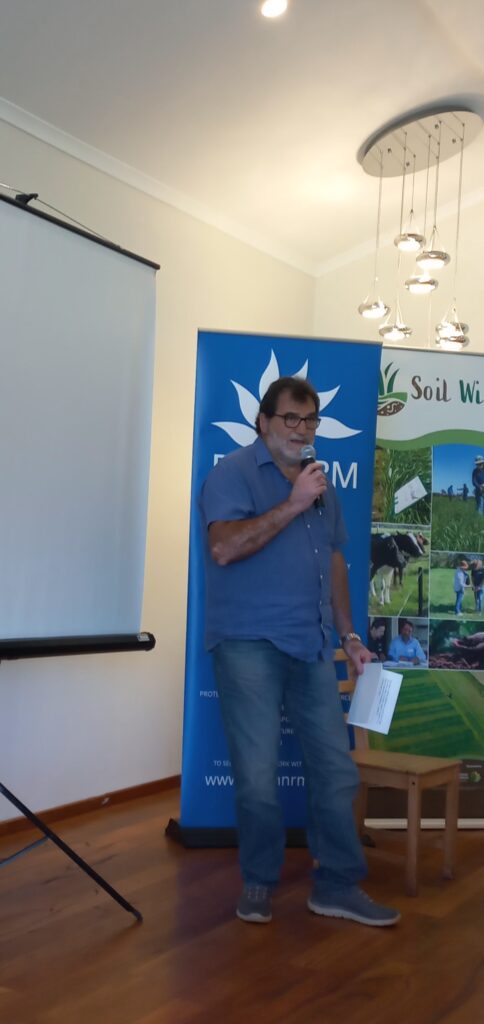by Vincenzo Velletri
On the 16th of February I attended a workshop with Dr. Christine Jones a leading Australian scientist on soil ecology and microbiology.

The workshop addressed how to optimise soil health and production system through regenerative farming for perennial horticulture. The participants got useful information that they can integrate in their own operation to build a sustainable and resilient business.
I was asked to contribute to the event and present the vision of Slow Food on regenerative farming.
Slow Food believes food is tied to many aspects of life, including culture, politics, agriculture and the environment. Recent statistics indicate that the current food system is responsible for 37% of the global pollution. Through our food choices we can collectively influence how food is cultivated, produced and distributed, and change the world as a result.
In 2004 Slow Food launched the Terra Madre Network to give voice to small scale farmers, fishermen and food producers and bring them together with cooks, academics and youth to discuss how to improve the food system collaboratively.
Terra Madre is held in Turin (Italy) every 2 years, the last one was held in September 2022 and the theme was “Regener-action”, meaning that we can regenerate only if we take action.
Edie Mukiibi, Slow Food President opened the event by saying that regeneration can be found in nature: a tree that has lost one of its branches can grow it back; likewise, soil that has been impoverished by monoculture and chemical inputs can be regenerated thanks to farming practices that nourish the land, ensuring nutritious crops, diversified diets and dignified livelihoods. It also possible to regenerate abandoned mountain areas through sustainable livestock breeding and grazing, and reverse the depopulation of the highlands.
Fresh water and salt water ecosystems can be regenerated with traditional knowledge of the cultures who handed down their techniques for centuries.
Last but not least cities can be regenerated by reducing the distance between food production and consumption.
This distance, which is both physical and psychological, has widened over the last century, rendering the production of our food largely invisible to us. This gap can now be closed if we choose to focus again on where the food comes from and respect who produces it every day, promoting good, clean and fair food for all.
